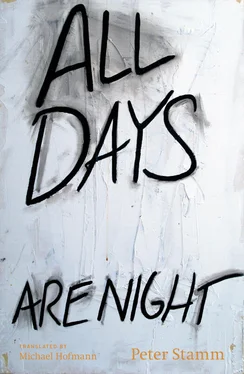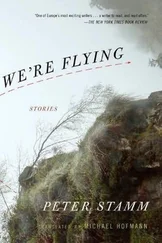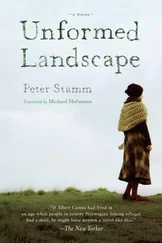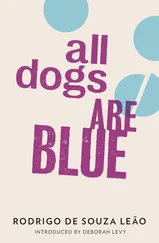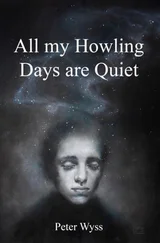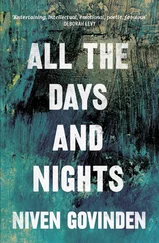Peter Stamm - All Days Are Night
Здесь есть возможность читать онлайн «Peter Stamm - All Days Are Night» весь текст электронной книги совершенно бесплатно (целиком полную версию без сокращений). В некоторых случаях можно слушать аудио, скачать через торрент в формате fb2 и присутствует краткое содержание. Год выпуска: 2014, Издательство: Other Press, Жанр: Современная проза, на английском языке. Описание произведения, (предисловие) а так же отзывы посетителей доступны на портале библиотеки ЛибКат.
- Название:All Days Are Night
- Автор:
- Издательство:Other Press
- Жанр:
- Год:2014
- ISBN:нет данных
- Рейтинг книги:3 / 5. Голосов: 1
-
Избранное:Добавить в избранное
- Отзывы:
-
Ваша оценка:
- 60
- 1
- 2
- 3
- 4
- 5
All Days Are Night: краткое содержание, описание и аннотация
Предлагаем к чтению аннотацию, описание, краткое содержание или предисловие (зависит от того, что написал сам автор книги «All Days Are Night»). Если вы не нашли необходимую информацию о книге — напишите в комментариях, мы постараемся отыскать её.
All Days Are Night — читать онлайн бесплатно полную книгу (весь текст) целиком
Ниже представлен текст книги, разбитый по страницам. Система сохранения места последней прочитанной страницы, позволяет с удобством читать онлайн бесплатно книгу «All Days Are Night», без необходимости каждый раз заново искать на чём Вы остановились. Поставьте закладку, и сможете в любой момент перейти на страницу, на которой закончили чтение.
Интервал:
Закладка:
Gillian got up, went over to the window, and sat down on the window seat. Hubert didn’t notice. She saw his silhouette and the images of the naked women on the wall. She imagined his face, pale in the reflection of the slides, his cold, critical gaze. She felt reminded of a photograph of a cinema audience she had seen once, incomplete faces with staring eyes and mouths opened in laughter. That was always how she had pictured her viewers.
In the next tray were pictures of a small woman with wide hips and large, pendulous breasts. She had short blond hair and hairy armpits. Both her posture and her facial expression had something theatrical about them. She hung washing on a low rack in a tiny bathroom, baby things and men’s socks. She took a book from a shelf, hunkered down on the floor, and swept up with a dustpan and brush, maybe crumbs from biscuits she had given her child. The apartment was cluttered and untidy. In the last pictures, the woman looked close to tears.
She looks terribly lonely, said Gillian. Do you have any idea what you put these women through?
They agree to take part, said Hubert, switching the trays. Even in their nakedness they try not to reveal themselves. They hide behind their movements, their smiles, their way of exhibiting themselves.
Gillian was surprised that she didn’t seem to get used to nakedness, as in the sauna or the shower at the gym. The more pictures she saw, the stranger the bodies became to her. A big mole, a fold of skin, pubic hair shaved back to a narrow strip, everything acquired exaggerated significance. The bodies fell apart, looked disproportionate, ungainly, ill made.
Is it like that for you as well? she asked.
You’re starting to see them, said Hubert. That’s the way I paint them, detail by detail, surface after surface. Even when I’m taking the photographs, I try not to be overly present. That’s why I use a camera with a big viewfinder. When the models look into the camera, they see only their own reflection in the lens.
He had clicked rapidly through some pictures of a young, gangling woman, then stopped at one where she was looking at herself in a mirror. The woman’s arms were hanging down, and her stomach was slightly protuberant. Her gaze looked critical, as though dissatisfied with what she was seeing.
Could perhaps do something with that one, he said, although mirrors are tricky.
What good is it for the woman, if she never sees the picture? asked Gillian.
Nothing, said Hubert. She’s just the model. I’m not a portraitist.
And why do they take part?
I’ve no idea, he said. Maybe they have a need to be recognized in some way. He switched off the projector. Are you tired?
Gillian nodded.
I’m going to stay here awhile longer. Shall I walk you back to your car?
Yes, please, said Gillian.
It took her a while to find the way home. It was ten, later than she’d supposed, but traffic was still heavy. She felt disappointed, and annoyed with herself for being disappointed. He could at least have asked her to sit for him. The thought had a strange attraction.
While she was waiting at a light, she switched her phone back on. She got three text message signals. At the next light, she read them. Two were from Matthias, the third was from Hubert. She deleted them all without answering.
Gillian woke early. She was in pain again, but she didn’t want to take any more pills. She stepped out onto the balcony in her dressing gown to smoke a cigarette. It was raining, and a strong, cold wind was blowing. She could hear some birds, but not as many as usual. The thought of birds sheltering from the rain, cowering in shrubbery somewhere, feathers ruffled and heads tucked in, moved her in a sentimental way. It got sneakily brighter, but the sky remained gray and the rain kept falling.
The fear set in quite unexpectedly. It seemed to come from outside, but it had nothing to do with Matthias’s death or the accident, more the rain, the gray skies, and the shapelessness of the beginning day. Fear is the possibility of freedom, a sentence she had read once long ago and without ever understanding it, never forgotten. She still didn’t understand it, but it seemed to describe exactly what she felt. In front of the building was a sandbox, a dismal parody of a children’s playground, under a gray cover. The clattering of the rain on the polyethylene was very close and loud as the voices of the solo birds against the city’s backing track. It was odd that rain always seemed to take Gillian back to her childhood, as though it had only ever rained then. She was ten or twelve, it was early morning, and she was on her way to school. She could hear the sounds of the rain on her hood, the drips splashed her face.
Gillian, she spoke her name out loud. She thought of the girl who had just graduated from drama school and had got her first engagement at an obscure provincial theater. She had played a dwarf in a Christmas pantomime, a serving girl in a comedy, and Rebecca Gibbs in Our Town. She told George about the letter Jane Crofut got from the preacher when she was ill. The envelope was addressed to Jane Crofut; The Crofut Farm; Grover’s Corners; Sutton County; New Hampshire; United States of America, Continent of North America; Western Hemisphere; the Earth; the Solar System; the Universe; the Mind of God. You don’t say, said George, who never got anything. And still the mailman had delivered the letter. Each time she said that sentence, it brought tears to her eyes.
It was a time when everything seemed possible, but freedom unsettled and scared her. She didn’t suffer from stage fright, oddly, she never had, but a sort of fear that was worse after the show was over. Her boyfriend had been taken on at another theater, but they had never bothered to break up. They telephoned less, and then stopped entirely. Gillian was left to her own devices, she lived over a pizzeria in a little apartment where it was always too warm. She had no friends outside the theater, and none in it really either.
It took her a while to discover that she wasn’t a good actress and never would be. She played women who gave themselves, who loved unconditionally, who sacrificed themselves, but she couldn’t take any of the roles quite seriously. A part of her always watched herself acting. I can’t regret, or flee, or stay, or live — or die! The little miss marched resolutely out the door, but the audience surely realized she wasn’t going to the barn to hang herself, but to the dressing room to take off her makeup.
Only after she had entered journalism did she start to feel more secure. She got the job in television and then she started playing the beautiful and successful cultural correspondent for the viewers, for the media, for Matthias, and for herself. She avoided making crass mistakes, Matthias played along, basically he was the better actor. They were continually in demand, giving information, playing themselves. Their voices were louder, they moved differently in public. When they got home, half soused and tired, and stood side by side brushing their teeth in the bathroom, Gillian sometimes had to laugh at the two faces in the mirror. Even the laughter was part of the performance.
Gillian felt slightly sick from her cigarette. She put it out and went inside. She stopped briefly in front of the coffeemaker, then she went into the bedroom and lay down again. The window was open a crack, and the rain was audible only as a steady hiss. She spent all day in bed, delaying trips to the kitchen or bathroom as long as possible. Her pains had let up, but that didn’t make it any easier, they had battered her back into her body, had made her boundaries all the more distinct. Gone with the pain were her points of reference, and now Gillian had to go to the trouble of finding them all again. She leafed through old photo albums. There were family albums, with pictures of her as a little girl, photos of holidays and birthdays, family portraits that barely changed over the years. These albums held the first pictures of elementary school productions, Gillian as Mother Mary, as Snow White, as a cat in a musical. Eventually her story detached itself from the family’s. Everything concerning her profession was in a separate album, which Gillian had started. Theater programs, interviews, photos taken at parties, reviews, all clipped and pasted. The first page, the one that in the other albums bore a name or dates, was empty.
Читать дальшеИнтервал:
Закладка:
Похожие книги на «All Days Are Night»
Представляем Вашему вниманию похожие книги на «All Days Are Night» списком для выбора. Мы отобрали схожую по названию и смыслу литературу в надежде предоставить читателям больше вариантов отыскать новые, интересные, ещё непрочитанные произведения.
Обсуждение, отзывы о книге «All Days Are Night» и просто собственные мнения читателей. Оставьте ваши комментарии, напишите, что Вы думаете о произведении, его смысле или главных героях. Укажите что конкретно понравилось, а что нет, и почему Вы так считаете.
